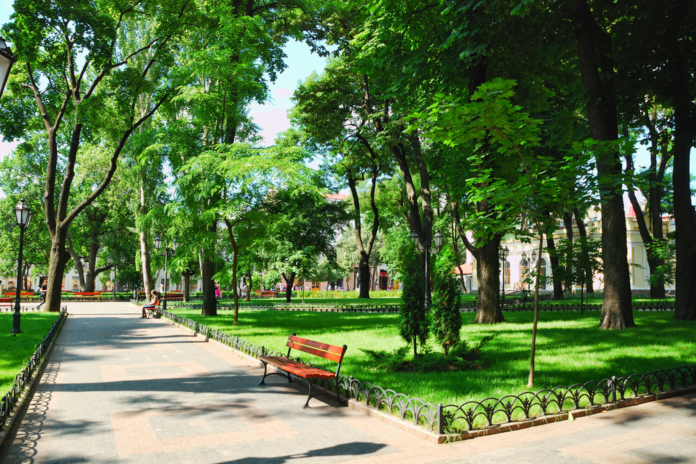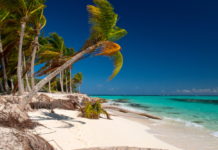In July large swathes of the Northern Hemisphere were gripped in an unprecedented and destructive heat wave. Records were broken as Europe and North America experienced everything from fire to deaths, lost crops and even infrastructure melting or crumbling. Pipes burst in Texas, homes ignited in the UK, a museum roof melted in China and parts of the London Bridge had to be covered in foil to avoid them melting and collapsing.
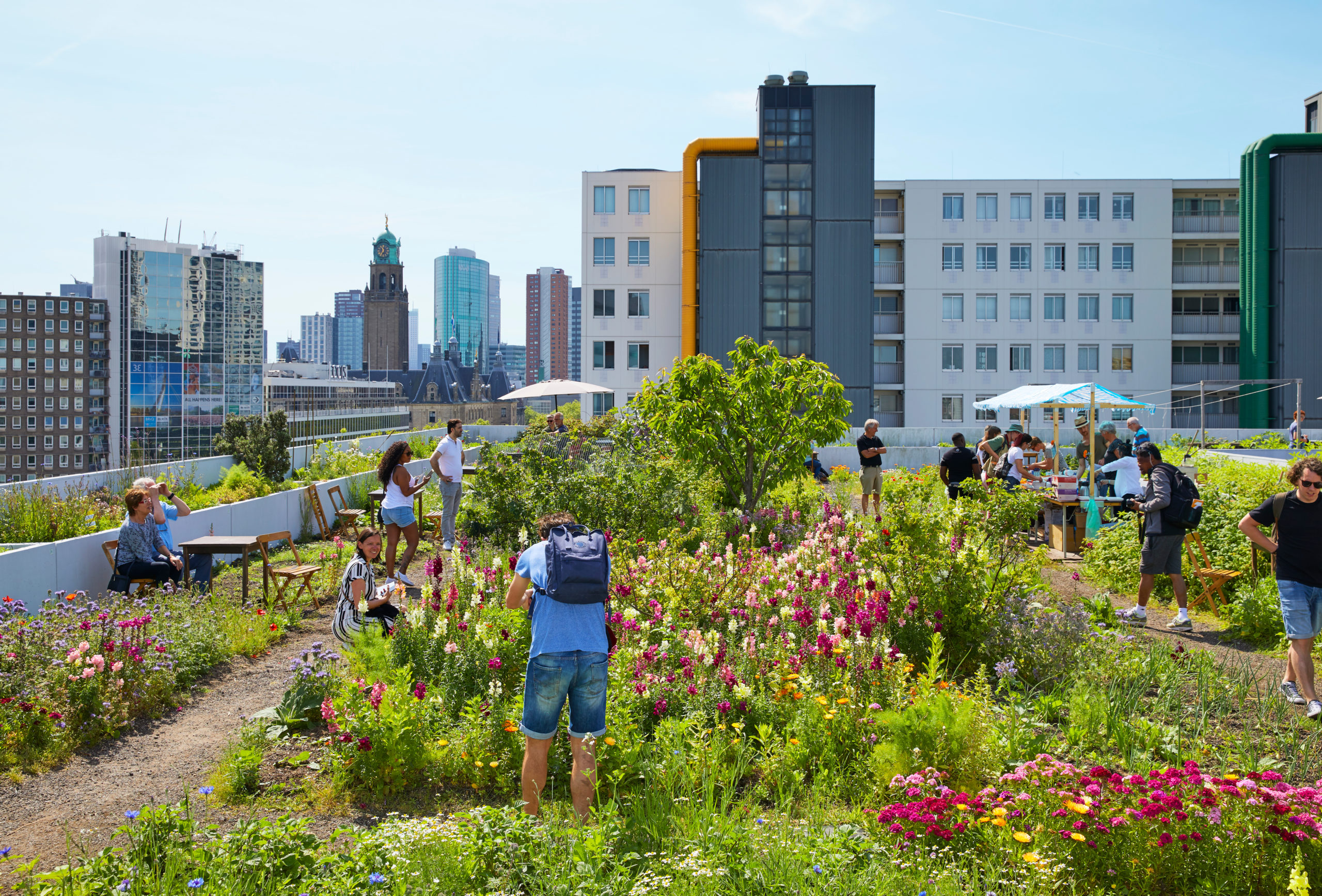
In contrast to this, one city called Rotterdam in the Netherlands managed to weather the deadly heat far better than others. With its love of rooftop gardens and various city parks, many of its citizens found both their health and sanity greatly conserved according to GreenBiz. This isn’t an anomaly. Parks and green spaces work wonders both for the human condition and the environment. The Caribbean as well can benefit from this approach rather than fall into the trap of many developing nations wherein environmental enrichment is sacrificed in the name of progress. Both can in fact, be achieved.
National Parks Can Be Your Friend
According to the Barcelona Institute for Global Health up to 43,000 deaths could be prevented in Europe alone each year through the implementation of more green spaces such as parks in and around cities. The reasoning is quite simple. Pollution kills. We don’t just mean air pollution but also noise and heat pollution. Trees and green areas help mitigate heat retention in the surrounding surface, both using and reflecting some while also blocking out and absorbing the sound from noise. This is important to note as many tend to overlook or outright ignore the destructive abilities of noise and heat pollution. Urban areas tend to feature restricted airflow and increased heat retention thereby creating a manmade green house of sorts.
Noise from traffic, urban activity, construction and other sources are known to increase stress and agitation in individuals which concurrently impact one’s physical health according to the WHO. As Caribbean nations have grown, many areas have gradually transformed into a continuous urban sprawl near a state’s capital. An ideal example would be Trinidad’s East-West corridor area. Throughout the process of this rapid development, many seek to build on every available inch of land without much consideration for open and green areas. Indeed, most parks are those already established decades prior.
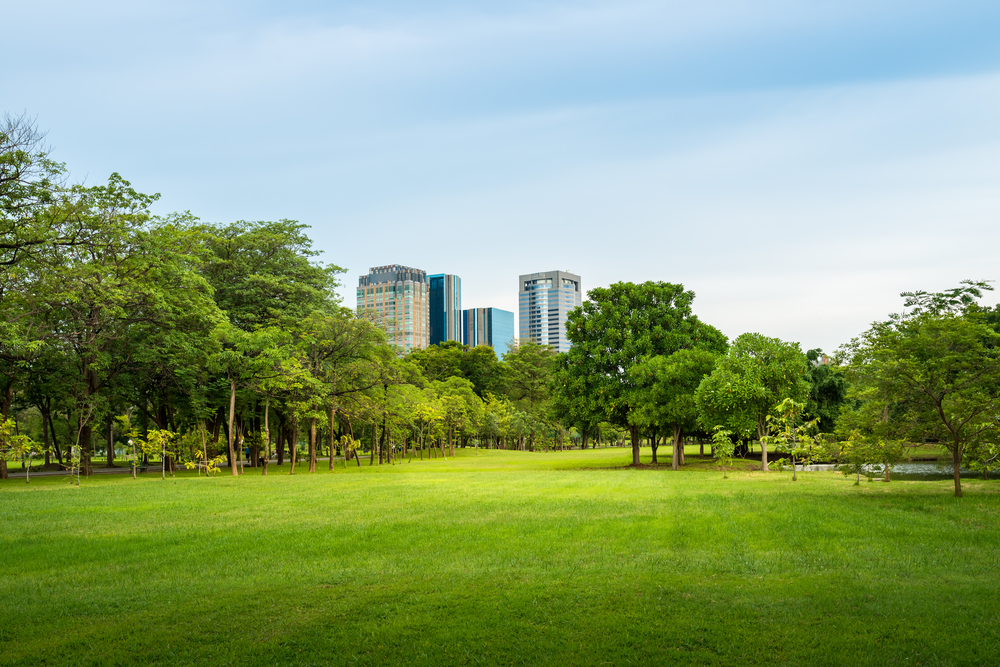
The Public-Private Partnership
Though a greening initiative can be spearheaded by state entities, it should not be entirely driven by them. Private businesses, volunteer groups and other activist organizations can all play a part. This can be done through tax incentives, investment opportunities and a direct drive to encourage more private stakeholders and landowners to ‘green’ their premises when engaging in major developments. For example, development of new urban areas can be better planned so as to make room for park spaces while still facilitating construction and other projects. Businesses can become shareholders in lands purchased for parks, in development and upkeep of said parks and in return be granted tax breaks, tax returns and other financial incentives. As such it doesn’t need to entirely be philanthropic in nature and a degree of profit can be involved in the venture as well.
Think Bigger
While parks in urban locales are an excellent idea, we shouldn’t simply stop there. For example the CDC and WHO both note that ready and available access to green spaces help boost mental health among those who experience it. It can also be utilized not just for socialization but exercise as well. In the case of Caribbean nations this can be combined with nature based tourism. Parks can double as nature preserves and be utilized and areas where local flora, fauna and experiences can be enjoyed. This can take the form of hikes, nature walks and local eateries on the outskirt entrances to such parks. Consequently, this venture can once again involve the private sector albeit with a more obvious and direct incentive for profit through the aforementioned businesses. Thus, both private sector entities and the state can attain healthy revenue while also aiding in the health, well-being and mental improvement of citizens.
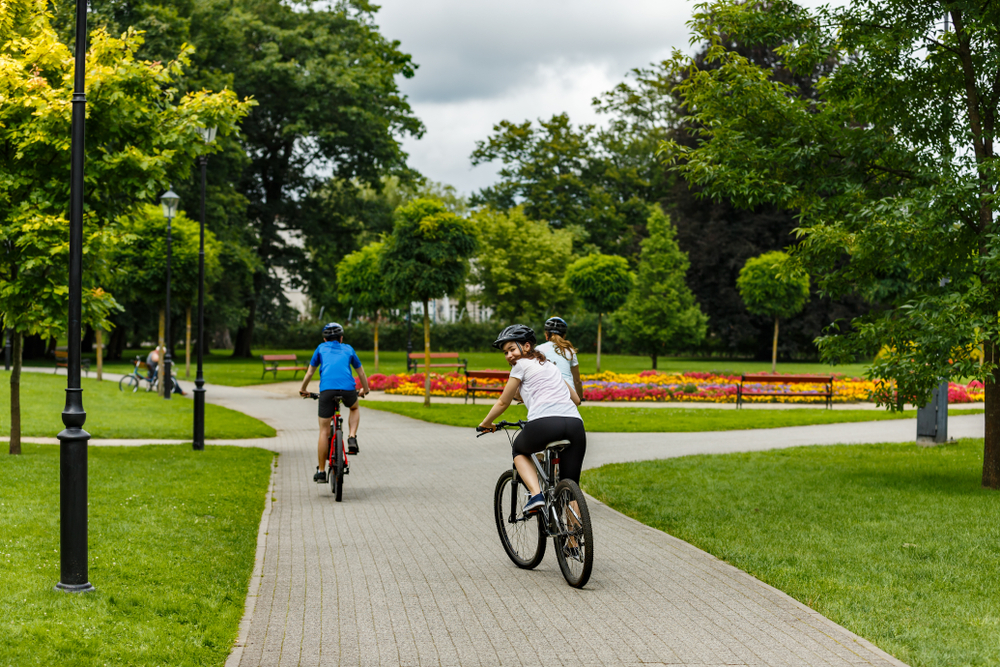
Creation Of A New Economic Sector
As previously mentioned, the adoption and establishment of state lands into national parks provides ample opportunities for investors and tourist opportunities. Consequently, one can envision a future wherein nature lodges and other forms of overnighting are made available to tourists, intermingled within the framework of these parks. Settlements near these green areas can become developed, improved and wealthier by becoming tourist hubs where locals can garner revenue and employment across a spectrum of areas be it as guides, transportation workers, culinary specialists or staff vital to the upkeep and good maintenance of said parks. Thus, if well established and partnered, such a move can both generate local employment as well as bring much needed revenue to the state whilst simultaneously benefitting the health of locals. This is not a foreign concept and has been utilized successfully in rural Asian locales ranging from Japan to South East Asia.
Thus, we see how a drive to improve the overall physical and mental health of the citizenry can also carry over into economic benefits as well. It would be best for Caribbean nations to take advantage of their tropical location and seize upon the potential it presents in this regard.


